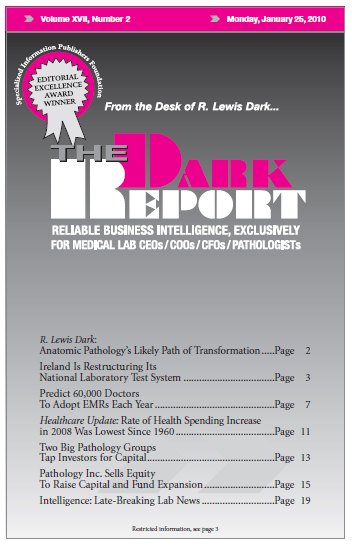RECENTLY the Centers for Medicare and Medicaid Services (CMS) reported on healthcare spending for 2008. The noteworthy finding was that the rate of increase in health spending fell to 4.4% for 2008. This is the lowest annual rate of increase in health spending since CMS first began officially tracking health expenditures in 1960. In its …
Rate of Health Spend Increase in 2008 Was Lowest Since 1960 Read More »
To access this post, you must purchase The Dark Report.


